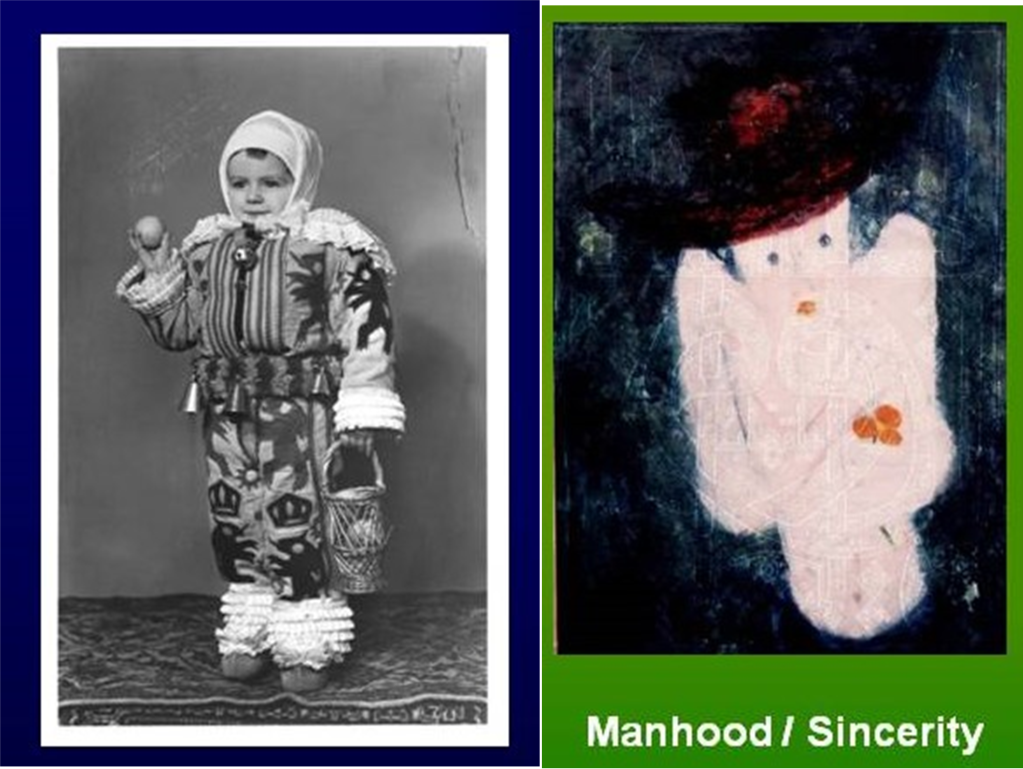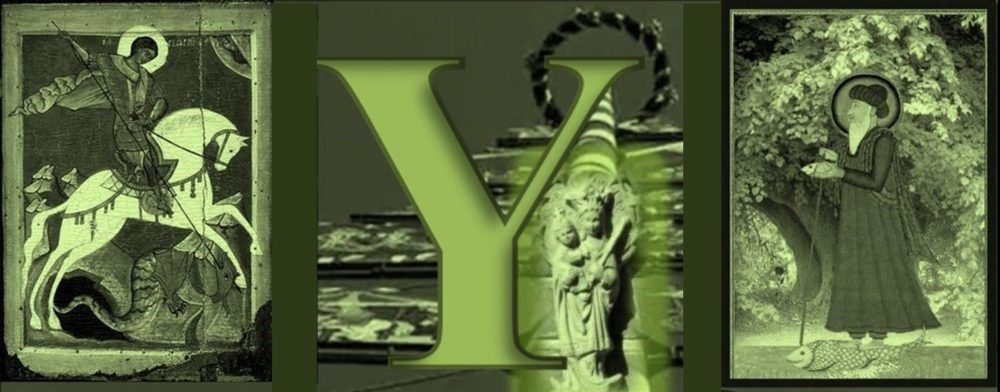- “I can’t Breathe” is the expression of the Crisis of the modern world.

Justice for All March – Dec. 13, 2014“I can’t breathe“ is sure the slogan associated with the Black Lives Matter movement in the United States. The phrase is derived from the words of Eric Garner and George Floyd, two African-American men who died of asphyxiation during their arrests in 2014 and 2020, respectively, as a result of excessive force by primarily white police officers. The phrase is used in protest against police brutality in the United States.
But this protest, this Cry show us the real problem of the Modern man:
- Modern man is a human without Soul, without the “Living Breath”.
The protest is the expression of his deep spiritual Crisis in the times of deep ignorance..
Modern man suffocates and cries: “i can’t breathe” , because a human without “the living Breath” is always dying. It is his only certainty in life, man shall once die and all traditions in the world teach us to take care of our Soul, our “Living Breath”, always in our daily life, but sure at the moment when we are dying. Modern man is the only one of all the traditions of the world who dares to think that he is right to live without his soul and without his “Living Breath”. What an arrogance and Vanity! But remember Vanity is the quality of being vain, something that is vain, it is always empty, or valueless. Read more here
- Ego rules the world: Anti-“God”, Anti-“Humanity”, Anti-“Nature

Our civilization is in decay. Because we have blown-up our ego. Cosmic Balance has been disturbed. The Origin – Cosmic Womb/Vacuum – “doesn’t tolerate” this. With the help of Her two Cosmic Forces of “Death and Rebirth” (“Stirb und Werde” – “Die and Become”-J.W. von Goethe see Goethe , the “refugee”) She breaks down our ego-accumulations, thus restoring the Original Balance and become a “refugee” for our times. See Spiritual exercise for the “Refugee” of our Times
Current decadence, greed, evil, falsehood, corruption, violence, injustice, exploitation, thus have a Cosmic undertone. It is a “Cosmic Law” that civilizations which have become megalomaniacal will inevitably collapse. Because all levels of existence are corroded – including the religious realm – only a Dimension that is beyond – META – God and the world can redeem us. “God hasn’t created the world out of nothingness, but Nothingness (Cosmic Womb) is giving birth to God and the universe, the latter continuously returning to the Origin”.

- The Personality and mentality of a Mother needed for the man of our times

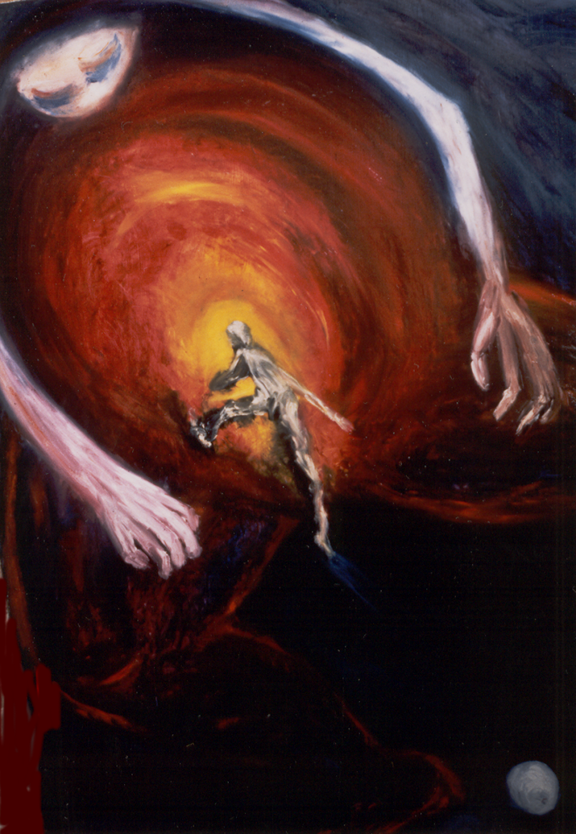
Mother is personification of love, compassion and kindness. Hence mother in many cultures is considered as an Avatar of God and Goddess. She is godmother as she loses her complete identity in the person of her child. She bears the child in womb for nine months and as soon as she gives birth to the child, milk of human kindness flows from her breast for the new born to suck till the child can grow up and feed on cow milk and other nutrients.

She burns the candle of her life for the well-being of her child totally forgetting about her comfort, bearing all the pain of child bearing cheerfully and gleefully. Night and day she sacrifices her comforts, her leisure and gives her everything for the wellness of her child.
This continues till she exists and her life is for her children and for their welfare. She takes utmost care of her child and bestows best of attention with deep love. She burns midnight candles for the upbringing of her child. She is constant in her love and nothing can shake her from loving her child and many more children she bears. Each and every of her children are her favorites and she does not distinguish her children from one or the other.
She inculcates best of culture, manners in a child and furthers the child’s mind with pure thoughts and moulds the child’s character and conduct. Come rain or summer shine, she is at the beck and call her children and bestows her best attention in all times to come till her last breath.

This sacrifice of mother is possible because of effacement of her ego and ‘I-ness’. It can happen only when the heart has turned golden and mind glitters with love and deep affection.
‘Mother is love and love is Mother’; caring, comforting, pacifying, creating hopes, applying balm to the wounds and restoring ruffled feathers. She suffers sleepless nights to give comfort to her children. She protects her children all through from adversaries. She takes away all the grieves, sorrows and pathos and protects the children from parching Sun; from rain and storms; covers with blankets for warmth and to prevent from shivering of cold.

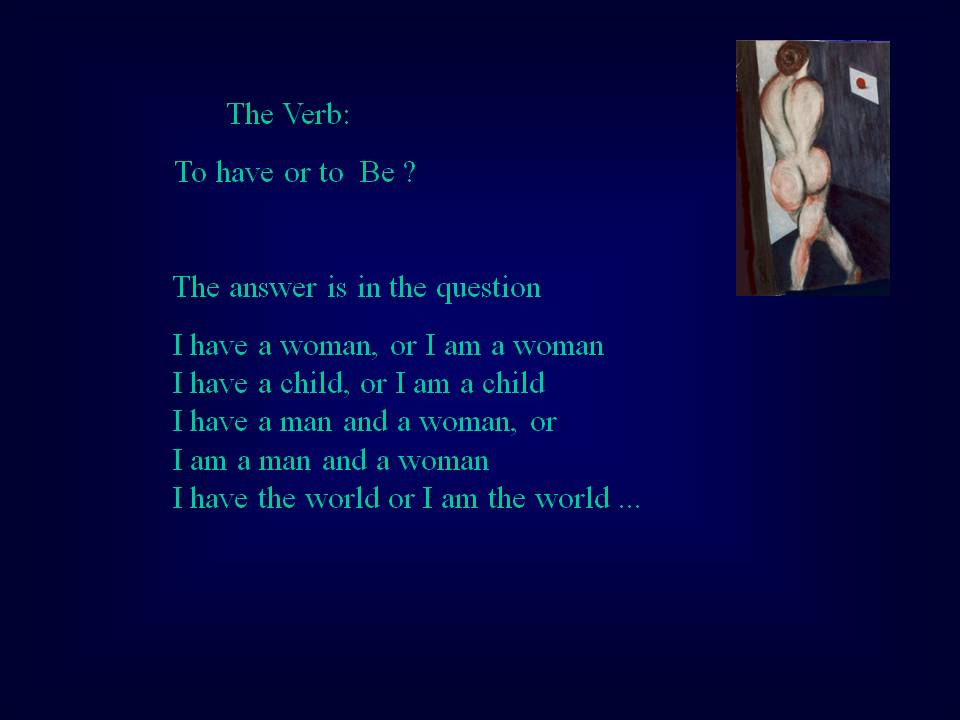


She goes hungry and suffers thirst to feed her children at all times and seasons. She prays and prays for grace and love to fall on her children. She sucks away all the poison from the wounds of her children, so that her children can live in happiness. A mother has shunned her identity and becomes nameless, faceless to give succor to her children. So rightly it has been said that heaven lies below the feet of mother. If one needs benediction then one needs to serve one’s mother. It is the mother’s prayers and supplication that brings success and glory to the children.
- Jung: “The world hangs on a thin thread… and that is the psyche/soul of the man”

The world hangs on a thin thread, and that is the psyche of man. Nowadays we are not threatened by elementary catastrophes. There is no such thing [in nature] as an H-bomb; that is all man’s doing. We are the great danger. The psyche is the great danger. What if something goes wrong with the psyche? You see, and so it is demonstrated to us in our days what the power of the psyche is of man, how important it is to know something about it. But we know nothing about it. Nobody would give credit to the idea that the psychical processes of the ordinary man have any importance whatever. One thinks, “Oh, he has just what he has in his head. He is all from his surroundings, he is taught such and such a thing, believes such and such a thing, and particularly if he is well housed and well fed, then he has no ideas at all.” And that’s the great mistake because he is just that as which he is born, and he is not born as “tabula rasa,” but as a reality. Read more here
- The path from I to i


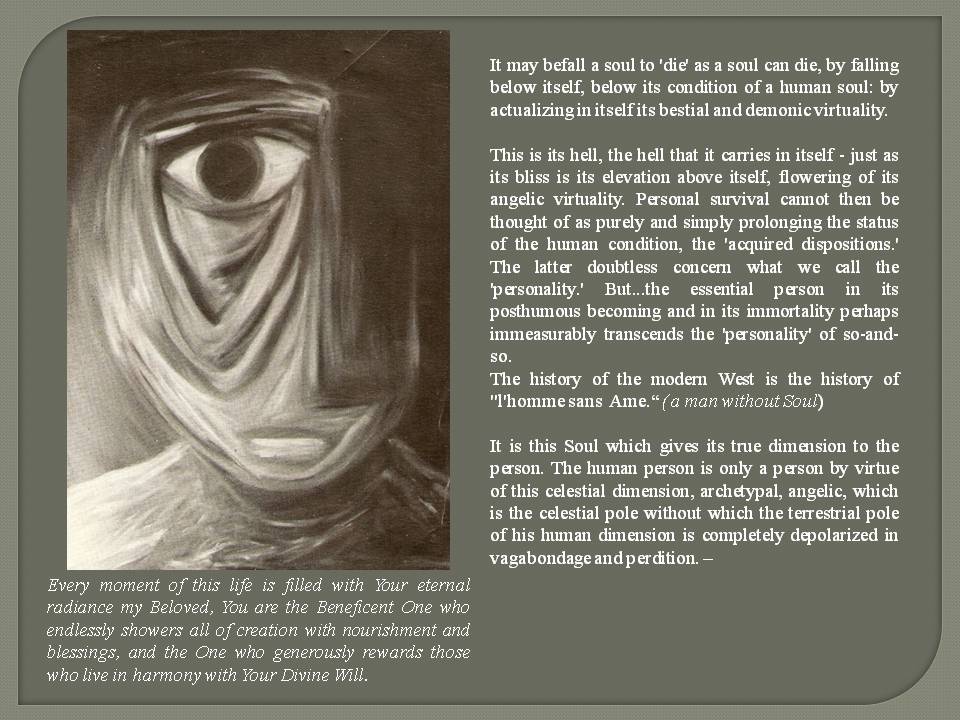

In contrast to Occidental philosophy, the Sufi idea of seeing “Many as One”, and considering the creation in its essence as the Absolute, leads to the idea of the dissolution of any dualism between the ego substance and the “external” substantial objects. The rebellion against God, mentioned in the Quran, takes place on the level of the psyche, that must be trained and disciplined for its union with the spirit that is pure. Since psyche drives the body, flesh is not the obstacle to humans but rather an unawareness that allows the impulsive forces to cause rebellion against God on the level of the psyche. Yet it is not a dualism between body, psyche and spirit, since the spirit embraces both psyche and corporeal aspects of humanity. Since the world is held to be the mirror in which God’s attributes are reflected, participation in worldly affairs is not necessarily seen as opposed to God. The devil activates the selfish desires of the psyche, leading the human astray from the Divine. Thus it is the I that is regarded as evil, and both Iblis and Pharao are present as symbols for uttering “I” in ones own behavior. Therefore it is recommended to use the term I as little as possible. It is only God who has the right to say “I”, since it is only God who is self-subsistent. Uttering “I” is therefore a way to compare oneself to God, regarded as shirk.

The Path from I to i – Book final
- Man and his Soul
Man’s real identity which is called soul has numerous aspects and layers. Quran mentions its three states (carnal, self-reproaching and peaceful). It is well inferred from Quranic verses that human soul and spirit has three stages:
1-The carnal soul or man’s animalistic layer:
Man’s animalistic layer is summarized in lust, anger and carnal desires[2]. This internal inclination and state of soul is termed by Quran as the carnal soul. The Quran emphasizes that: “Most surely (man’s) self is wont to command (him to do) evil” Quran 12:53
That is why it has been called the carnal soul (the soul that commands to the vices). In this stage the intellect and the faith have not become so strong to control and harness the untamed soul. Instead the intellect and faith become dominated and defeated by the carnal soul in many cases.
In a quotation by ancient Egypt’s queen, this stage has been referred to where she said: “And I do not declare myself free, most surely (man’s) self is wont to command (him to do) evil”. Quran 12:53
2-Self-reproaching soul:
“Lawwama soul”: It is a stage of soul reached by humans following education, training and effort. During this stage, human may occasionally commit vices due to the swelling of instincts. However he becomes immediately remorseful, blames himself and decides to recompense by cleaning his heart and soul through tawba [repentance].
Quran calls this stage “lawwama soul” and states: “Nay! I swear by the self-accusing soul.”Quran 75:2
3-Peaceful soul:
“Mutma’enna soul” is a stage achieved by humans following purification and complete training. In this stage untamed instincts are unable to fight with the intellect and faith because the intellect and faith have become so strong that instincts do not have much power to confront.
This is the position of prophets’ and God’s friends and their true followers; those who have learned lessons of faith and piety purifying their souls for many years accomplishing jihad akbar [the grand jihad].
Quran calls this stage as “mutma’enna soul” and says: ” O soul that art at rest! Return to your Lord, well-pleased (with him), well-pleasing (Him)” Quran 89:27-28
See also Seven levels of being

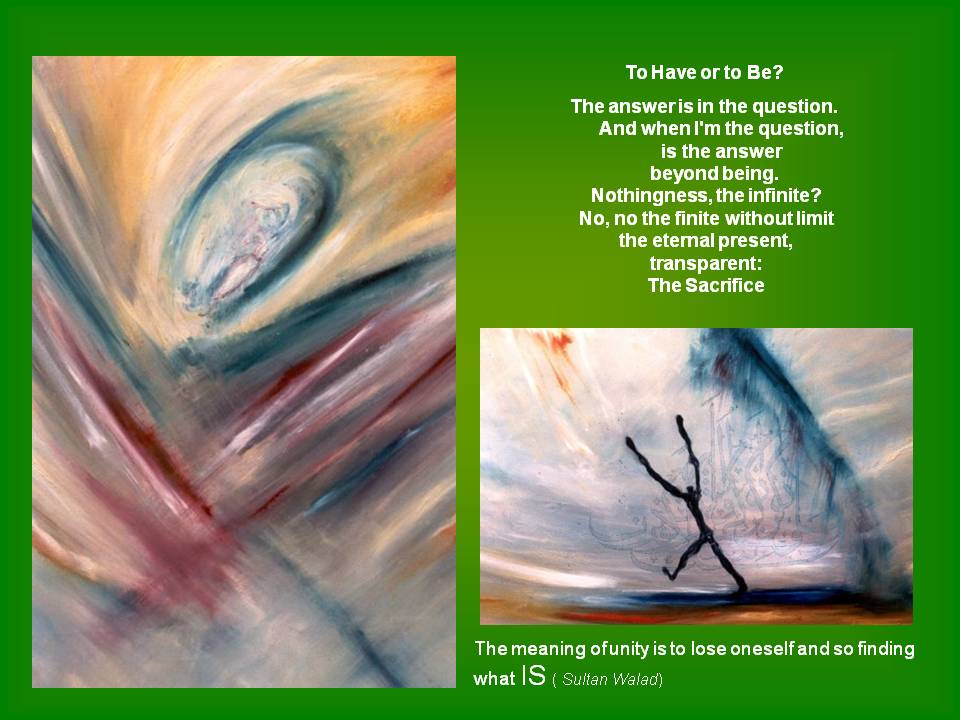

- The birth of Jesus in man


- Faouzi Skali in his book Jesus and the Sufi Traditon explains in the 10 chapter,The birth of Jesus in man:

The soul of the mystic, Rûmi teaches us, is similar to Mary: “If your soul is pure enough and full of love enough, it becomes like Mary: it begets the Messiah”.
And al-Halláj also evokes this idea: “Our consciences are one Virgin where only the Spirit of Truth can penetrate”
In this context, Jesus then symbolizes the cutting edge of the Spirit present in the human soul: “Our body is like Mary: each of us has a Jesus in him, but as long as the pains of childbirth do not appear in us, our Jesus is not born” ( Rumi, The Book of the Inside, V).
This essential quest is comparable to suffering of Mary who led her under the palm tree (Koran XIX, 22-26): “ I said:” 0 my heart, seek the universal Mirror, go towards the Sea, because you will not reach your goal by the only river! ”
In this quest, Your servant finally arrived at the place of Your home as the pains of childbirth led Mary towards the palm tree “(RÛMi, Mathnawî, II, 93 sq.)
Just as the Breath of the Holy Spirit, breathed into Mary, made him conceive the Holy Spirit, as so when the Word of God (kalám al-haqq) enters someone’s heart and the divine Inspiration purifies and fills his heart (see Matthew V, 8 or Jesus in the Sermon of the Mountain exclaims: “Blessed are pure hearts, for they will see God! “) and his soul, his nature becomes such that then is produced in him a spiritual child (walad ma’nawî) having the breath of Jesus who raises the dead.
“Human beings,” it says in Walad-Nama ( French translation, Master and disciple, of Sultan Valad and Kitab al-Ma’ârif the Skills of Soul Rapture), must be born twice: once from their mother, another from their own body and their own existence. The body is like an egg: the essence of man must become in this egg a bird, thanks to the warmth of Love; then it will escape its body and fly into the eternal world of the soul, beyond space. ”
And Sultan Walad adds: “If the bird of faith (imán) is not born in Man during its existence, this earthly life is then comparable to a miscarriage.”
The soul, in the prison of the body, is ankylosed like the embryo in the maternal womb, and it awaits its deliverance. This will happen when the “germ” has matured, thanks to a descent into oneself, to a painful awareness: “The pain will arise from this look thrown inside oneself, and this suffering makes pass to beyond the veil. As long as the mothers do not take birth pains, the child does not have the possibility of being born (. Rumi, Mathnawî, II, 2516 sq.) (…) My mother, that is to say my nature [my body], by his agony pains, gives birth to the Spirit … If the pains during the coming of the child are painful for the pregnant woman, on the other hand, for the embryo, it is the opening of his prison ”(Ibid., 3555 sq)

Union with God, explains Rûmi, manifests itself when the divine Qualities come to cover the attributes of His servant:
“God’s call, whether veiled or not, grants what he gave to Maryam. 0 you who are corrupted by death inside your body, return from nonexistence to the Voice of the Friend! In truth, this Voice comes from God, although it comes from the servant of God! God said to the saint: “I am your tongue and your eyes, I am your senses, I am your contentment and your wrath. Go, for you are the one of whom God said: ‘By Me he hears and by Me he sees!’ You are the divine Consciousness, how should it be said that you have this divine Consciousness? Since you have become, by your wondering, ‘He who belongs to God’.
I am yours because ‘God will belong to him. Sometimes, I tell you: ‘It’s you!’, Sometimes, ‘It’s me!’ Whatever I say, I am the Sun illuminating all things. “(Mathnawî, I, 1934 sq).
Once the illusion of duality has been transcended, all that remains in the soul is the divine Presence: the soul then finds in the depths of its being the divine effigy.
It has become the place of theophany. This is what Rumi calls the spiritual resurrection: “The universal Soul came into contact with the partial soul and the latter received from her a pearl and put it in her womb. Thanks to this touch of her breast, the individual soul became pregnant, like Mary, with a Messiah ravishing the heart. Not the Messiah who travels on land and at sea, but the Messiah who is beyond the limitations of space! Also, when the soul has been fertilized by the Soul of the soul, then the world is fertilized by such a soul “( Ibid., II, 1184 sq.).
This birth of the spiritual Child occurs out of time, and therefore it occurs in each man who receives him with all his being through this “Be!” that Marie receives during the Annunciation: “From your body, like Maryam, give birth to an Issa without a father! You have to be born twice, once from your mother, another time from yourself. So beget yourself again! If the outpouring of the Holy Spirit dispenses again his help, others will in turn do what Christ himself did: the Father pronounces the Word in the universal Soul, and when the Son is born, each soul becomes Mary (Ibid., III, 3773.)
So Jesus can declare: “O son of Israel, I tell you the truth, no one enters the Kingdom of Heaven and earth unless he is born twice! By the Will of God, I am of those who were born twice: my first birth was according to nature, and the second according to the Spirit in the Sky of Knowledge! » (Sha’ranî, Tabaqat, II, 26; Sohrawardî, ‘Awarif, I, 1)

The second birth corresponds to what we also gain in Sufism as the “opening (fath) of the eye of the heart“: “When Your Eye became an eye for my heart, my blind heart drowned in vision ; I saw that You were the universal Mirror for all eternity and I saw in Your Eyes my own image. I said, “Finally, I found myself in His Eyes, I found the Way of Light!” (Rumi, Mathnawî, II, 93 sq.)
This opening is the promise made by God to all those who conclude a pact with the spiritual master, pole of his time, like the apostles with Jesus or the Companions when they pledged allegiance to Muhammad: “God was satisfied with believers when they swore an oath to you under the Tree, He knew perfectly the content of their hearts, He brought down on them deep peace (sakina), He rewarded them with a prompt opening ( fath) and by an abundant booty which they seized ”(Coran XLVIII, 18-19).(The abundant loot indicates Divine Knowledge (mari’fa)
Read more jesus and the Sufi tradition
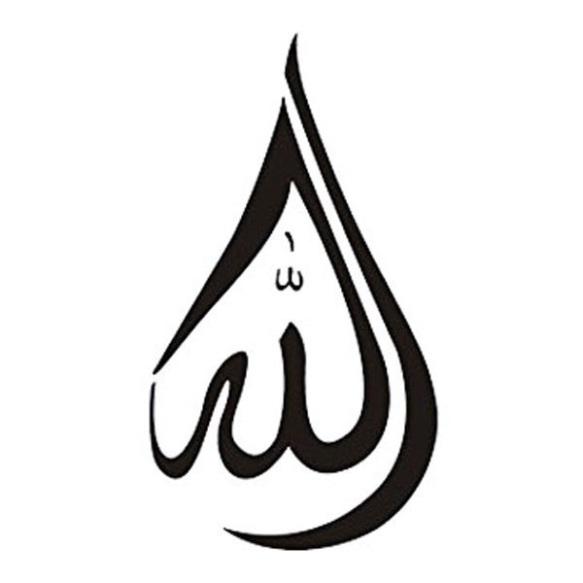
- God’s Mercy
Muslims begin the recitation of the Qur’an with the opening verse (1:1) “Bismillaahir Rahmaanir Rahim,” translated as “In the name of God, Most Gracious, Most Merciful”. Reciting this verse before beginning any activity (including meals) is considered an essential part of Islamic life. But how many of us try to find out how is God Most Merciful? And what is the relationship of His Mercy with human beings?
Take the Arabic words RAHIM and RAHMAN used so often in the Qur’an. They are most often translated in English as MOST MERCIFUL and MOST GRACIOUS (as given above). These translations do not fully explain the depth and the breadth of the meaning contained in the original Arabic.
The root of both RAHIM and RAHMAN is R-H-M, which means mother’s womb.
The womb of the mother is where a child grows from conception until birth. The mother nourishes the child with her blood. The child develops there slowly and gradually according to a timetable. As the child grows, its nourishment is adjusted accordingly. Also, this nourishment for the child is free. The mother’s womb provides a flexible yet completely protected environment in which the child may grow. All of these aspects are included in the root meaning of the Arabic word RAHIM. Thus RAHIM is one who provides free nourishment slowly and gradually for growth and development that adapts to changing needs.
The difference between RAHIM and RAHMAN is that RAHIM is based on the weight of FA’EELUN and that RAHMAN is based on the weight of FA’LAANUN. FA’EELUN implies a gradual or progressive act and FA’LAANUN implies a sudden or emergent action. A child’s growth inside the mother’s womb will be considered a progressive evolution. This is one kind of God’s mercy on a gradual, slow and progressive basis. But, as soon as the child is born, her requirements suddenly change. Providing nourishment on a sudden or emergent basis is characterized as RAHMAN. This is called emergent evolution. Since God has provided both kinds of nourishment for our growth and development HE is both RAHMAN as well as RAHIM.
Now consider this. The Earth is our home from which we derive all the nourishment for our growth and development. But this would not have been possible if our Earth was not protected from the constant bombardments from deadly radiations such as X-rays and Gamma rays. The protective shield that God has created to block these deadly radiations from reaching the Earth is similar in function to the mother’s womb. God has created this nature’s womb so that we can grow and develop within its protective shield. He has also provided all the essential nourishment for our growth and development for free. But this is only one aspect of His Mercy.
The other aspect of His Mercy includes our spiritual growth and development. For this he has sent His ultimate Book of guidance, the Qur’an, under whose protective moral shield we can grow and develop spiritually. And He has made Mosques—“And the places of worship are for Allah (alone)” (72:18)—centers for this spiritual growth and development.
Truly, He is Al-Rahim and Al-Rahman, The Most Gracious, The Most Merciful.
If we emulate these attributes of mercy (within human limitation) in our daily lives we become agents of God on earth. If we relinquish our compassion and mercy to ideologies of hate and revenge, we become only agents of destruction.
- Bism ‘Lláh al-Rahmán al-Rahim / In the Name of God, the Compassionate, the Merciful
Traditions affirm that everything in the Book is encapsulated in the words ‘In the Name of God, the Compassionate, the Merciful’ ; this symbolises how all things are contained in the Being of their Being-Giver; that is, that everything in them branches from what is in Him: Nor is there anything but with Us are the treasuries thereof [Q.15.21]. That the Divine Name (Allah] comes before the other Beautiful Names symbolises the precedence of the Essence, and how the Names and Qualities are contained in Its treasury.
al-Rabmán
The first of the Names to be proclaimed thereafter is The Compassionate (al-Rabmán): ask any informed of Him! [Q.25-59]; because of this, it among all Names is given in the bismillah to describe Him. Were it not that it was the first Name to be manifested, it would not have been assigned the position of `rising'(istiwa’): The Compassionate, raised upon the Throne [Q.20- 5].
Because of this `rising’, this Name has precedence over all other Names, both those of Majesty and those of Beauty. This is alluded to in those sacred hadith’ which affirm that mercy has precedence over wrath. The rising of the Compassionate over all beings is what allows the unbeliever to receive divine favours, and what allowed Satan to rebel.
al-Rabim
As for His Name ‘the Merciful’ (al-Rabim), it is the last of the revelations (In the sense that it is the last word of the bismillah, which here symbolises the whole of the Qur’án), and its effect is hidden within the actions of created beings. This is alluded to in the hadiths, ‘The merciful are shown mercy by God,’ and, ‘To fail to thank people is to fail to thank God.’ The presence of His mercy in them means that they merit thanks; and all thanks is due to God.
Now the ba’ of the bismillah requires a verb to give it context (That is, it requires us to say ‘I begin in the Name of God’, or the like), and this verb is here elided.
This symbolises how a Quality (ija) requires a context to make its manifestation necessary; and this context is provided by the Act of the Essence, but it is elided; which is to say that it is only supposed (muqaddar), but has no being of its own independent from its Being-Giver.
This is the difference between the two kinds of being. As to whether it comes before or after the Quality, this depends on the perspective of the given spiritual wayfarer.
He who is immersed in the divine Magnificence will not see it at all, nor will he describe it either with being or nonbeing, never mind see it as coming before or after.
Read more Commentary on the Bismillah
- THE ISLAMIC CONCEPT OF HUMAN PERFECTION
THE GOAL OF HUMAN LIFE
Those dimensions of Islam dedicated to providing the guidelines for the development of the full possibilities of human nature came to be institutionalized in various forms. Many of these can be grouped under the name `Sufism’, while others can better be designated by names such as `philosophy’ or `Shiite gnosis’. In general, these schools of thought and practice share certain teachings about human perfection, though they also differ on many points. Here we can suggest a few of the ideas that can be found in most of these approaches.
1 Human beings are God’s vicegerents (Khalifa) or representatives in this world. The cosmos as a whole represents an infinitely vast display of the signs of God. All the divine attributes are reflected in unfathomable diversirv through the myriad worlds and the creatures scattered therein. But human beings are microcosms. Just as the universe reflects all the divine attributes in an infinitely vast display, so also human beings reflect all the divine attributes in a concentrated unity. Man is the mirror image of both God and the cosmos. Since man finds all things within his own being and awareness, he is able to rule the outside world. He recognizes all things within himself, and, knowing them, is able to control them. This provides him with the necessary qualities to be God’s vicegerent. But by the same token, he is responsible for the manner in which he interacts with the creatures under his pover.
2 The model for attaining to human perfection, also called the `vicegerency of God’, is set down in the divine word, that is — in the Islamic sense — the Qur’án. Without following the guidance set down in the Scriptures, human beings will fall short of their full humanity and fail to reach ultimate happiness, which depends upon being truc to their own nature. The divine guidance revealed in the Qur’án is embodied in the Prophet Muhammad. Thus his wife A’isha remarked that those who wanted to remember the Prophet should read the Qur’án, since character is the Qur’án’. But emulating the Prophetic model does not mean simply conforming to the Prophet’s outward activity: it demands assimilation of his moral and spiritual traits as well. In other words, the Qur’án and the Sunna represent God’s guidance for the full actualization of human perfection on every level, from the outward levels — those of activity and social concerns — to the more inward levels, such as knowledge, morality, love, spirituality and every human virtue.
3 All human attributes are in truth divine attributes. Just as the cosmos and everything within it are nothing but the signs of God, so also man and everything within him are God’s signs. Every positive trait displayed by a human being derives from God. All human knowledge represents a dim reflection of the divine knowledge, just as all virtues — generosity, justice, patience, compassion, gratitude, love — are manifestations of divine qualities. A human being possesses nothing positive which he can claim as his own, since everything belongs to God. This holds for other creatures as well, but human beings, because of their peculiar synthetic configuration embracing all the divine attributes, are held responsible for their own choices and activities. The fact that most of them dweil in heedlessness (ghafla) of what they owe to God will not excuse them from being called to account. (This concept of heedlessness, it should be noted, is as close as Islam comes to the concept of original sin.)
4 People are profoundly mistaken when they identify anything positive as their own. This holds not only for outward possessions, which are on ban from God, but also for inward possessions, such as the positive attributes and characteristics that go to make up their own specific identities. The only thing human beings may rightfully claim as their own are those attributes that define the distante that separates them from God. Existence and everything that goes along with it — such as life, knowledge, will and power — belong strictly to God, whilst non-existence and its concomitant qualities — such as ignorance, need, death and weakness — belong specifically to the creature.
5 Human beings on their own are nothing, but as representatives of God they are everything, since they manifest all the divine names and attributes. However, the fundamental nature of this `everything’ is itself indefinable, since it is modelled upon God, who is ultimately unknowable. Full human perfection involves the actualization of all the divine attributes present in the human configuration, and hence it involves entrance into indefinability. When human beings identify the positive contents of their persons with any specific attribute or definition, they have failed to grasp their own true nature. Perfection demands the shedding of all attributes and definitions, since these are limitations. Perfect human beings manifest all divine attributes, so they are defined by none of them. They employ each divine attribute in the appropriate circumstances, recognize all things for what they are, and interact with all creatures in accordance with the creatures’ realities.
6 Though in theory any human being can achieve the fullness of human perfection, in practice only a tiny minority will reach it. Nevertheless, the majority will benefit from the human state if they observe the Law and strive to the extent of their own capacities, and they will benefit from all those who achieve human perfection, since it is the vicegerents who act as intermediaries between God and the cosmos, serving as channels for the divine replenishment that sustains the world.
7 The purpose of the social order is to provide a stable framework within which human perfection can be achieved, and all other goals are secondary. The more a society forgets the purpose of human existence, the further it moves from legitimacy. It is the duty of the learned to preserve to the fullest extent possible the teachings and practices of religion in order that the greatest number may attain ultimate happiness and the door to human perfection may always remain open.
Universal Man by ‘Abd al-Karim al-Jili 1365-1424/
‘Abd al-Karim al-Jili was born near Baghdad, a descendent of the great saint and founder of the Qadiri dervish order, ‘Abd al-Qadir al-Jilani. Little has been discovered about his life, save a few glimpses of spiritual autobiography revealed in his writings, but it is known that he travelled in India, and then lived for a time in the Yemen. He produced more than twenty books, of which Universal Man (al-Insan al-Kamil) is the most celebrated. His teaching follows that of Muhyiddin Ibn ‘Arabi, of which it can be regarded as a systematic exposition, though expressed in a manner which is uniquely his own.
Universal man is Man the Macrocosm, the complete image and manifested consciousness of God, exemplified and expressed in the lives of saintly individuals.
Jili’s account therefore takes the form of a series of chapters on the appearances of Absolute Reality such as Essence, Names, Qualities, and Divinity. These appearances correspond to contemplative states encountered by the mystic on the path of Union, which are discussed more particularly in the later chapters.
Jili’s exposition is incisive and illuminating, his intention entirely practical. He writes: “I will mention of tall that only that which happened to me on my own journey to God; moreover, I recount nothing in this book, neither of myself nor of another, without my having tested it at the time when I traveled in God by the path of intuition and direct vision.”
Titus Burckhardt has provided an extensive and helpful introduction to Jili’s work, and commentary on the text. Extracts, translated with commentary by Titus Burckhardt
Read here Universal Man – al-Insan al-Kamil



